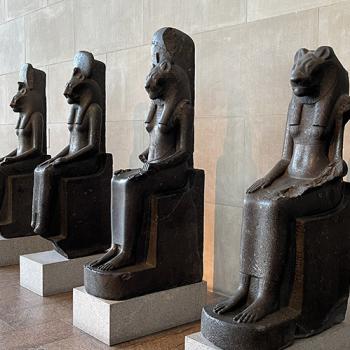The new book Letters to a Future Church features the voices of more than 25 of today's Christian thinkers and thought-leaders. Popular blogger and author Rachel Held Evans is one of the contributors; her letter is featured below in this excerpt from the book. [Visit the Patheos Book Club for more on Letters to a Future Church.]
To the Church in North America,
I write to you as one of your own at a time when many in my generation have abandoned you. As the church in the Third World continues to grow, the church in North America is in Decline. Some are predicting our imminent demise, while others foresee a glorious rebirth. Most seem to think that we're in the midst of an identity crisis, one that will determine the shape and direction of the North American church for many years to come.
According to the statistics, we are a people of relative prosperity and relative generosity. We control most of the world's wealth and we give much of it away. Though we struggle with materialism, we value charity. While we want to make the world more just, we don't always know how to start.
But are we people of the kingdom?
That is the question at the heart of this crisis, and as we struggle together to answer it, I am convinced that we don't need bigger buildings or fancier sound equipment, better pastors or more parishioners, newer ministries or deeper pockets.
What we need are bigger banquet tables.
Jesus loved banquets. He performed his first miracle at a wedding reception in Canaan, turning jars of tepid water into the finest of red wines. He spent so much time feasting in the homes of sinners that the religious wrote him off as a glutton. When the five thousand were hungry, he served them fish and bread. When the time of his death drew near, he ate dinner with his closest friends. After Peter had denied him three times, he offered redemption over breakfast. It's as if Jesus knew his message would mean more to us if we could taste and smell it. How fitting that in his absence we remember him by eating together.
When Jesus returns, he plans to throw a great banquet in honor of his bride, the church. It's an event foreshadowed by the prophet Isaiah who describes it as a east of rich food for all peoples, a banquet of aged wine—the best of meats and the finest of wines. (Isaiah 25:6) The apostle John called it the "marriage supper of the Lamb." Baptists call it one eternal potluck.
We get to enjoy a foretaste of this meal through the communion of the kingdom. Jesus compared the kingdom to a lot of things, but one of his favorite metaphors was that of a feast."People will come from east and west and north and south," he said, "and will take their places at the feast in the kingdom of God" (Luke 13:29).
But while everyone is invited, not everyone will come.
Jesus compares the situation to a king hosting a dinner party.
Just as the meal is about to be served, all the rich neighbors cancel, saying they've got too much to do. So the king tells his servant to "Go out to the streets and alleys of the town and bring in the poor, the crippled, the blind and the lame. Go out to the roads and country lanes and make them come in, so that my house will be full" (Luke 14:23).
Likewise, when we throw parties, Jesus tells us to invite the poor, the crippled, the blind and the lame so that we too will be blessed.
I suspect that Jesus used all this delicious imagery because he knew that there is a difference between feeding people and dining with people.
Feeding people means keeping the hungry at arm's length. It means sending checks now and then, making thanksgiving baskets once a year, preaching about justice, and launching new ministries—all while sitting comfortably at the head of a tiny table, dropping scraps of our abundance to the floor.
Americans are good at feeding people.
But dining with people is an entirely different matter. Dining together means sitting next to one another and brushing arms, passing the bread basket and sharing the artichoke dip. It means double-dipping and spilling drinks, laughing together and crying together, exchanging stories, ideas, recipes and dreams. According to Jesus it means leaving the seat at the head of the table ceremoniously empty so that all are guests of honor and all are hosts. Dining together isn't charity; it's friendship.
For the church in North America to grow in a good way, we need to break down the distinction between those who serve and those who are served. The abundance must truly be shared. At the local level this may mean hosting literal banquets, complete with Jesus-style invitation lists. At the global level, it means sacrificing some of our own comforts so that when we care for our faraway neighbors we can still feel their presence beside us at the table.




